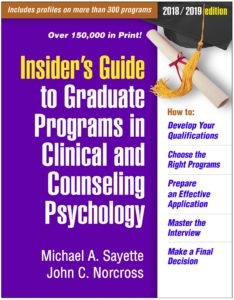Doctorate Degree in Psychology and Alternative Options

***Keep in mind that my content is directed more for those attending public institutions of higher education in the state of Texas.
Just like not all master’s degrees lead to licensure as an LPC or LMFT, not all doctorate degrees lead to licensure as a psychologist. If one intends to be a psychologist, a typical path is to get a master’s degree, then be accepted into a doctorate program that leads to the appropriate license. Another path is to get accepted to the doctorate program right after the bachelor’s degree and earn the master’s “along the way”. These are very competitive academic paths!
Licensed Psychologist (LP): Texas State Board of Examiners of Psychologists
Great resource to compare APA accredited doctorate programs that lead to licensure:

Another option is to get licensed at the master’s degree (LPC or LMFT) and then get a doctorate that does not specifically lead one to be a psychologist (LP). This way the individual can still be a practitioner and hold a doctorate, but there are many differences.
Same as before, these academic routes do not lead only to being a practitioner – one could also be an educator, researcher, or working in the business realm.
Something I’d like to point out before closing here is the difference between psychologists and psychiatrists. Many people quickly say the difference has to do with the fact that psychiatrists go to medical school, meaning they can prescribe medication. While that is a fundamental difference (with some exceptions), it most certainly is not the ONLY difference – and I would argue that it is not even the most important one.
By the way, should psychologists be allowed to prescribe psychotropics? Why or why not? Consider this, there are already some states where psychologists with additional training can prescribe medication. Consider the pros and cons – here are just a couple… There is a lot of unmet need out there where many people could benefit from these services if psychologists could prescribe. On the other hand, many worry that if psychologists prescribed medication, then they too would become more “medically” focused, instead of using that three-dimensional biopsychosocial model (remember that?).
See, the training focus and the perspective being taught to a future psychiatrist is MUCH different than what a future psychologist is being exposed to – each has its strengths. If someone wants to see a mental health professional, do you think they should start with their local general practitioner (MD), master’s level therapist, psychiatrist, or psychologist? Why?

Matthew A. Webster, MA, MS, ED.D, LPC
Dr. Matt Webster is a professional educator, nutritionist, and therapist located in the Houston, Texas area. He specializes in couples therapy, sexuality, and maladaptive eating patterns with a focus on the role of nutrition. More About Matt >>
Last modified:









